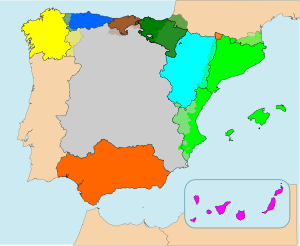I have been reading Al Gore’s The Future over the last few days. He talks about the emergence of a global paradigm that puts into question the survival of nation states as we know them today. Of course he sees the world through an American lens and therefore projects its primacy and influence in the forward evolution of society and politics. But there are other nations that are showing us the way, and there are social media organizations evolving from online discussion groups to becoming physical and political forces as I write this posting. Finally, when you consider the dysfunctional nature of the current American political process it would be a stretch to think that out of the mess that is Washington today would come the model for the rest of the World to follow.
In a previous posting on Society and Politics I wrote about the emergence of new concepts of national self-organization and described Singapore, a city state and a 21st century success story. Singapore is not a direct democracy like another city state that emerged 2,500 years ago. That state was Athens and it flourished as a direct democracy for its male citizens for more than two centuries before imperial ambition and war brought it to an end. Today its successor is representative democracy and it too has flourished for more than two centuries in many nations.
Representative democracy in the age of the Internet is under attack. That’s because individual citizens can bypass elected representatives and advocate for themselves. But for laws to be enacted the legislative process remains paramount. This directly conflicts with citizen-led initiatives which appear to be trending upward. We see early manifestations of this in recent movements like the Tea Party, MoveOn.org, Avaaz.org, Occupy WallStreet or 350.org. Even the executive branch of the American government has climbed on board with We the People, an online petitioning site giving U.S. citizens a direct means to engage government and not through Congress.
Leadership in the great experiment to revive direct democracy is not coming from the United States these days but from newly emerging democracies. One of those is Latvia. When you think of democracy you don’t typically think of Latvia, a country that re-emerged as independent after more than 60 years of Soviet imposed rule. Yet something very interesting has happened in that country. Today any Latvian citizen age 16 or older can submit an idea that eventually can become a law. The site ManaBalss.lv is a private initiative that has created an online community for enacting petitions to the Latvian parliament. The community includes volunteers who can help a petitioner flesh out a proposal so that it can turn into legislation. Volunteers include legal experts, politicians, educators and other knowledge experts within the country.
If a petition attracts 10,000 signatures the Latvian parliament since 2011 is obligated by law to debate it. The ManaBalss.lv site states it has attracted 15% of the population although a recent New York Times article quotes a higher number approaching 600,000 or 25% of the country. To date initiatives from the site have created two new laws.
In Europe a new web site encourages citizens of the European Union to participate in developing policies that can be turned into legislation by the European parliament. But ManaBalss.lv, unlike We the People, or The European Citizens’ Initiative is not the creation of governments. It is instead the brain trust of an Internet entrepreneurs. How can such a website become a significant player in a nation state? It’s easy because the Internet makes it so. The informal structure of the worldwide web is a counterbalance to the formal information structures presided over by government and big business. Citizens can do Google or Bing searches rather than visit a government or business site spouting their versions of the “truth.” Today information is no longer controlled by special interests or political operatives.
The Internet also creates a platform for continuous direct engagement among those who are governed. Citizen initiatives, electronic town halls, all are testing democratic practices raising the question “what further purpose does representative democracy play?”
In Ireland one politician running for the Irish parliament, has formed a new party, Direct Democracy Ireland which advocates giving citizens the right to counterbalance the legislative branch, enacting legislation through referenda and local initiatives.
And finally there is another trend that appears to be on the upswing. That is the deconstruction of nation states into smaller political and administrative units. It seems counter intuitive to have had a European Union form in the latter half of the 20th century, only to see its constituent parts, the nations of Europe, become fractured within themselves, because that appears to be something we are seeing in member states like Belgium, Spain (is the map below what will be Spain in 2100?) and the United Kingdom.
In 2100 our world may bear little resemblance to the geopolitics of today with the nation state no longer the principal means of organization. America Firsters who fear a world government take heed. It won’t be Big Brother. Instead it will be a mix that includes more physically separate national and cultural identities than we currently have today (Scotland, Wallonia, Flanders, Brittany, etc.,) a remnant of familiar 21st century nation states, new city states that have developed autonomy from their birth nations, and finally virtual “nations” built around cause.













I’m also reading Al Gore’s “The Future.” A very interesting book indeed :-). Not sure about all the notions being made, but surely interesting to think about. I think the biggest challenges for this century will be the automation of jobs by automated systems replacing humans and the increasing number of humans that need to live on the planet.
Human population growth is our principal 21st century challenge. Our consumption, our pollution, climate change, work opportunities, all are predicated on the demographic trending that we can see happening near-term as well as into the remainder of the century.
Automation has always redefined the workplace. Jobs have disappeared throughout the Industrial Revolution. What has to change in the 21st century is the way we educate young people to meet the job opportunities that will remain available to them in light of increasing automation. This means developing training, financial instruments and social programs that ensure generations of youth are not left without hope for a sustainable future. The youth challenge is particularly felt in the Developing World but we can see it here in North America as well.
For closed societies like Japan with a population about to plummet because it is so heavily skewed to the elderly, automation will dominate with robots becoming the care givers, that is, unless Japan alters its immigration policies to allow non-Japanese on mass into the country.
[…] Society and Politics in 2100 – Part 3: Democracy, Nations, and Technology […]